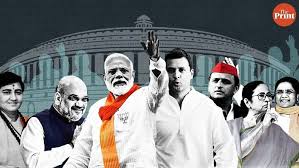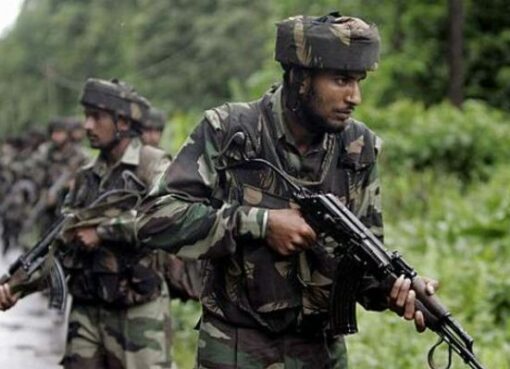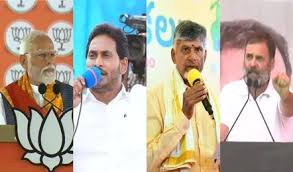by Prasad Nallapati
Baluchistan is Pakistan’s `achilles heel’. But India did not make any serious attempts to take advantage of it even under severe provocation from Pakistan. While Islamabad has been consistently beating India’s raw nerve in Kashmir, the Indian government had been very `shy’ in even uttering the `B’ word and avoided any public contact with rebel leaders of Baluchistan and Pakistan Occupied Kashmir (POK).
Every Indian Prime Minister felt that he could create history by negotiating with Pakistan a better and lasting relationship. All failed, but none wanted to learn from his predecessor’s bitter lessons. The consequent `flip-flop’ diplomacy confused international community and India did not help itself communicate effectively its frustration in negotiating with Pakistan a resolution to Kashmir and other issues.
How then one should read Prime Minister Narendra Modi’s strong outburst on Baluchistan and POK during his Independence Day address on August 15. His first two years in government went into cajoling Prime Minister Nawaz Sharif for a personal relationship that he was able to nurture with many other Heads of Governments, including President Obama. Unsurprisingly, it did not work with Mr Sharif as his remote control was elsewhere in Rawalpindi.
If Delhi is now serious and wants its voice to be heard loud and clear, Modi’s government needs to be consistent in maintaining pressure on Pakistan by highlighting atrocities and human rights violations in Baluchistan and POK while exposing its hand in exporting terrorism to India. Even the current unrest in Jammu and Kashmir which resulted in many unfortunate deaths pales into inconsequence when compared to daily bouts of kidnappings and beheadings of Baluchis by the Rangers and Army personnel, which is no less a `genocide’ that Islamabad perpetrated on Dacca in 1971.
Even the Pakistan’s Supreme Court under former upright Chief Justice, Iftikar Chaudhary, was compelled to take notice of `missing persons’ from Baluchistan and he ordered the `Agencies’ to produce the people that `disappeared’. After his retirement, the `Agencies’ could mow down the court into silence.
India has every right to highlight Pakistani atrocities in Baluchistan as Islamabad tried day-in and day-out to `manufacture’ so called `evidence’ of Indian involvement in terrorism there but could not produce any tangible one. The most they could produce so far was a mysterious capture of an `Indian naval officer’ and make him say on camera in confinement that he was sent to launch terrorist activity in Baluchistan. No consular access is given to Indian High Commission. It looks like another case of `honey trap’ set by the Pakistani agencies.
This case does not seem to be much different from that of Hamid Ansari, who also mysteriously landed up in Pakistan and was promptly arrested and pronounced guilty of espionage with a three year prison sentence. It has now been known that he was lured into the country by an online `girl friend’ to help her as she claimed to be in distress. He was facilitated to come to Afghanistan and then cross into Pakistan. Can any one traverse the route without the help of Taliban or other terrorist groups operating in that country under the control of the ISI? The naval officer’s story would not be different when facts come out. The Pakistani efforts to co-opt Iran into the story of the naval officer boomeranged as Tehran blew it off.
India, therefore, is within its right to expose Pakistan’s Establishment of its dirty tricks and parade its atrocities both in Baluchistan and Kashmir relentlessly and consistently. Following is a suggested strategy for India to adopt against Pakistani designs:
- Recognize that it is not worth to nurture any pretensions of `reasonableness’ of Pakistani establishment to negotiate a settlement other than full transfer of Kashmir valley. Their policy will not change for another two to three generations, at least, until the retirement of the `crop’ of army personnel recruited during and before Gen. Zia ulHaq’s Presidency. Hence, Indian government should not feel compelled to get into any kind of political negotiations until Islamabad demonstrate its `reasonableness’ and stop exporting terrorism.
- Pakistan will up its ante to claim that they are vindicated by the statements of Prime Minister Modi and other leaders about Indian involvement in Baluch terrorism. Next few weeks will see its diplomatic offensive in international capitals to present another so called `proof’ of Indian interference.
- Indian bureaucracy and political leadership are prone to collapse under such Pakistani diplomatic offensive. There is absolutely no need to loose nerve over their propaganda and New Delhi should be ready for a quiet but effective counter-diplomacy. There are tonnes of reports of atrocities committed by Pakistani security forces in Baluchistan and POK, no less than what they did in the then East Pakistan. Ministry of External Affairs (MEA) may set up a special cell to compile data on a regular and continuous basis and circulate among concerned interested parties, particularly the UN, USA, UK, EU, OAU, AL, etc. Indian intentions must be made very clear that it had no interest to interfere in Pakistani affairs but it was compelled to highlight the issues as international community is not doing enough to force Pakistan to mend its support to terrorism. The same message should go to the saner voices in Pakistan.
- While rebel leaders of Baluchistan and POK would welcome Indian support to highlight atrocities committed against them by security forces, they might be skeptical of New Delhi’s interest to sustain the pressure. They are quite aware of `flip-flop’ in India’s policies. India, therefore, needs to give enough confidence to them that its political support would be unwavering and consistent. This has to be practically demonstrated at all international fora.
- Some countries such as the US, UK and EU are likely to question India’s change of policy and threaten with consequences. They need to be clearly told that if they are `good friends’, get Pakistan to stop exporting terrorism into India and wind up terrorist bases in POK and other parts of their country. There cannot be one policy for them and another for India.
- At the same time, New Delhi shall have a consistent dialogue with all shades of opinion in Jammu and Kashmir. The Kashmir problem cannot be said to be a sole creation of Pakistan. There is no doubt of New Delhi’s mishandling of the situation for a long time. It is a border state and should be handled little more delicately. It is fine to imprison some Hurriyat leaders belonging to Syed Ali Shah Gelatin group as there is enough proof of sedition activities carried out under guidance and financial support of Pakistan. No tears would be shed for them by most Kashmiris who want to live in peace and development. Civilian casualties are something that could change the mood overnight and therefore should be avoided by every means. One should not get into working a `package’ for Jammu and Kashmir as some of the issues could not be resolved and hence would hold back other positive actions. Get some of the `doables’ done right away and others can be negotiated at leisure. The coalition government of PDP-BJP should demonstrate that they are alive to the aspirations of the people of the three regions of the state and could fulfill them. Such genuine dialogue between Delhi and J&K would be appreciated by the international community and would `silence’ Pakistani Establishment as any of their further tricks could further damage their reputation.
- India should maintain that Pakistan has no role at all in Kashmir affairs and hence, it would not negotiate with it on this issue. If there is no let up in its export of terrorism across the border, there must be well deliberated retaliation both diplomatically and militarily. Each action of Pakistan may be well documented and publicized before any retaliatory counter action is taken. Consistent policy of talks with Kashmiris and a stick for Pakistanis would prove effective and productive in the long run.
This article was published in the Economic Times on August 27, 2016
(Prasad Nallapati is President of the Hyderabad-based think tank Centre For Asia-Africa Policy Research and former Additional Secretary to Govt of India)




